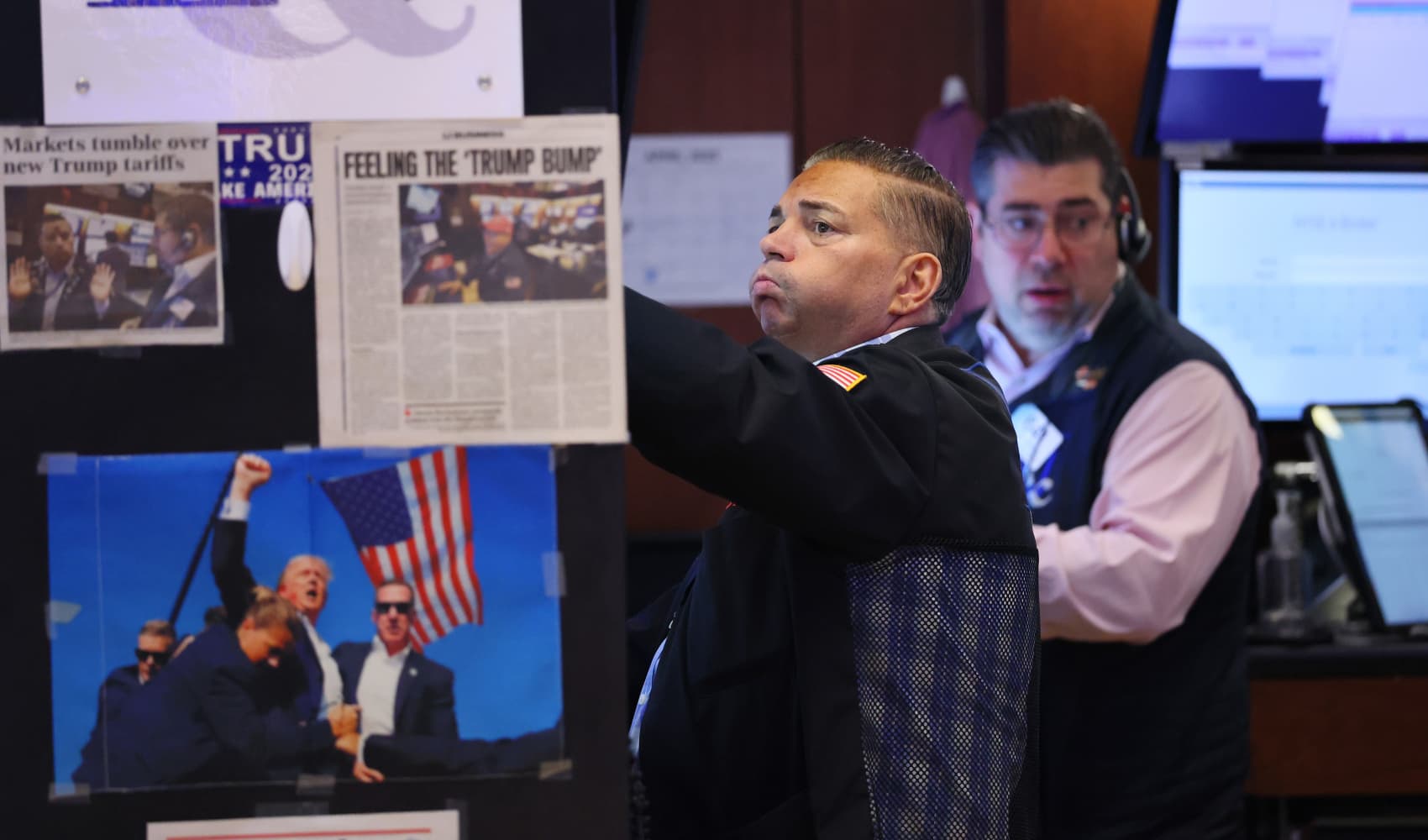Stock Market Volatility: What Happens Next?
Riding the Rollercoaster: What Happens After Stock Market Volatility Spikes
Introduction: From Fear to Fortune?
The stock market can feel like a rollercoaster, especially when volatility rears its ugly head. We've all been there, watching our portfolio balances dance with uncertainty, questioning every investment decision. But what if I told you that these periods of high volatility, though nerve-wracking, often pave the way for significant market gains? According to historical data and market analysts, they often do. So, before you panic-sell and hide under a financial rock, let's dive into what typically happens to stocks after periods of intense volatility.
Understanding Market Volatility
What is Volatility, Really?
Think of volatility as the market's mood swings. It measures how much and how quickly prices fluctuate. High volatility means prices are bouncing all over the place, while low volatility suggests a more stable market environment. It's essentially the degree of variation of a trading price series over time, usually measured by standard deviation.
The VIX: Wall Street's Fear Gauge
The VIX index, short for the Volatility Index, is often referred to as Wall Street's "fear gauge." It measures the market's expectation of volatility in the S&P 500 index over the next 30 days. A higher VIX reading indicates greater fear and uncertainty among investors. When the VIX spikes, it's a sign that investors are bracing for potential market turbulence.
The Historical Trend: Volatility Precedes Gains
S&P 500 Performance Post-Volatility
Here's the interesting part: historical analysis suggests that the S&P 500 tends to perform quite well in the year following periods of high volatility. Think of it like a coiled spring – the tighter it's wound, the more powerfully it can bounce back. Edward Lee, an investment strategy analyst at the Wells Fargo Investment Institute, highlighted this trend, suggesting that volatility creates a “potential opportunity.”
Why Does This Happen? A Few Theories
Why does volatility often precede gains? Here are a few potential explanations:
- Overselling: During periods of panic, investors often oversell stocks, driving prices down below their intrinsic value. This creates a buying opportunity for savvy investors.
- Mean Reversion: Markets tend to revert to the mean over time. After extreme drops, a correction upwards is often expected.
- Investor Sentiment: When fear is rampant, it can create a self-fulfilling prophecy. However, as the dust settles, investors often regain confidence, fueling a market rebound.
The Importance of Staying Calm
Don't Let Fear Drive Your Decisions
The biggest mistake investors make during periods of volatility is letting fear dictate their actions. Selling low and buying high is a recipe for disaster. Instead, try to remain calm, assess your long-term investment strategy, and avoid making impulsive decisions.
Think Long-Term, Not Short-Term
Remember that investing is a marathon, not a sprint. Short-term market fluctuations are inevitable. Focus on your long-term financial goals and resist the urge to react to every market gyration. A well-diversified portfolio designed for the long haul is your best defense against volatility.
Potential Opportunities in Volatile Markets
Buying the Dip: A Strategy for Bold Investors
For investors with a higher risk tolerance and a long-term perspective, periods of volatility can present buying opportunities. This is often referred to as "buying the dip." When stock prices fall, you can potentially purchase quality stocks at discounted prices. Just remember, do your research and only invest what you can afford to lose.
Rebalancing Your Portfolio
Volatility can also be a good time to rebalance your portfolio. If certain asset classes have become disproportionately large or small due to market movements, rebalancing can help you maintain your desired asset allocation and reduce risk. This involves selling some assets that have performed well and buying assets that have underperformed.
When the VIX Spikes Above 40: A Critical Threshold
What Does a VIX Above 40 Signify?
While the text content was truncated, let's assume a VIX above 40 indicates a period of "significant" volatility. Historically, these peaks often mark potential turning points in the market. A VIX above 40 suggests extreme fear and uncertainty, which, as we've discussed, can often precede market recoveries.
Historical Examples of VIX Spikes and Subsequent Returns
Think back to past periods of significant market turmoil, like the 2008 financial crisis or the 2020 pandemic-induced market crash. In both cases, the VIX spiked to extreme levels, reflecting widespread fear. However, in both cases, the market eventually recovered, and investors who stayed the course or even bought the dip were ultimately rewarded.
Strategies for Navigating Volatile Markets
Diversification: Your Best Friend
Diversification is one of the most effective ways to mitigate risk in volatile markets. By spreading your investments across different asset classes, sectors, and geographic regions, you can reduce the impact of any single investment on your overall portfolio.
Dollar-Cost Averaging: Smoothing Out the Ride
Dollar-cost averaging is a strategy where you invest a fixed amount of money at regular intervals, regardless of market conditions. This helps you avoid trying to time the market and can potentially lower your average cost per share over time.
Consider Seeking Professional Advice
If you're feeling overwhelmed by market volatility, don't hesitate to seek professional advice from a financial advisor. A qualified advisor can help you assess your risk tolerance, develop a suitable investment strategy, and navigate challenging market conditions.
Potential Risks to Consider
Volatility Doesn't Guarantee Gains
It's important to remember that historical trends are not guarantees of future performance. While the S&P 500 has often rebounded after periods of high volatility, there's no assurance that it will always do so. Market conditions are constantly evolving, and unforeseen events can always disrupt historical patterns.
The Importance of Due Diligence
Even during periods of volatility, it's crucial to conduct thorough due diligence before making any investment decisions. Don't blindly follow the herd or chase after the latest hot stock. Research the companies you're investing in, understand their fundamentals, and assess their long-term prospects.
Alternative Investments During Volatility
Exploring Safe Haven Assets
During periods of high volatility, some investors choose to allocate a portion of their portfolio to safe haven assets, such as gold, government bonds, or cash. These assets tend to hold their value better during market downturns and can provide a cushion against losses. But, remember that even these investments carry risk.
Real Estate: A Tangible Asset
Real estate can also be a stable investment during volatile times, offering a tangible asset that isn't directly tied to the stock market's daily fluctuations. However, real estate is illiquid and can take time to convert to cash if needed.
Preparing for Future Volatility
Building an Emergency Fund
One of the best ways to prepare for market volatility is to build a substantial emergency fund. This will provide you with a financial cushion to cover unexpected expenses and avoid having to sell investments during market downturns.
Reviewing Your Investment Strategy Regularly
It's essential to review your investment strategy regularly to ensure that it aligns with your financial goals and risk tolerance. As your circumstances change, you may need to adjust your asset allocation or investment approach.
Conclusion: Embrace the Ride
While market volatility can be unsettling, it's an inevitable part of investing. By understanding the historical trends, staying calm, and sticking to your long-term investment strategy, you can navigate these periods successfully. Remember, volatility often presents opportunities for savvy investors, so don't let fear cloud your judgment. Embrace the ride, stay informed, and focus on your long-term financial goals. It's about playing the game, not predicting every bump along the way.
Frequently Asked Questions
1. How long does it typically take for the market to recover after a period of high volatility?
Recovery times can vary significantly depending on the underlying causes of the volatility and the overall economic climate. Some recoveries are swift, while others can take several months or even years. There's no guaranteed timeline.
2. Is it always a good idea to buy the dip during a volatile market?
Not always. Buying the dip can be a risky strategy if the market continues to decline. It's essential to do your research, understand the underlying reasons for the market downturn, and only invest what you can afford to lose.
3. What are some common mistakes investors make during volatile markets?
Common mistakes include selling low out of fear, trying to time the market, and making impulsive decisions based on short-term market fluctuations. It's crucial to stick to your long-term investment strategy and avoid emotional trading.
4. How can I determine my risk tolerance?
Risk tolerance is a personal assessment of your comfort level with potential investment losses. Factors like your age, financial goals, and time horizon can influence your risk tolerance. Financial advisors can often help you determine your risk tolerance through questionnaires and discussions.
5. What role does inflation play during times of high market volatility?
Inflation can contribute to market volatility as investors react to rising prices and the potential impact on corporate earnings and interest rates. Unexpected inflation spikes can lead to increased market uncertainty and fluctuations.





